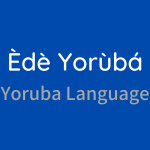
Learn Yoruba for Beginners – Unit 1/Lesson 0 : 50 Most Common verbs in Yoruba
Introduction
Welcome to our comprehensive guide on some of the most common Yoruba verbs! Whether you’re a beginner learning Yoruba or someone looking to deepen your understanding of this rich and vibrant language, knowing the basic verbs is essential for effective communication. Yoruba, a language spoken by over 20 million people primarily in Nigeria, is known for its musicality and tonal quality. Mastering these verbs will not only help you form basic sentences but also allow you to express a wide range of actions and emotions.
In this post, we’ve compiled a list of 50 common Yoruba verbs along with their English translations and example usages. This list covers everyday actions and interactions, making it a practical resource for anyone looking to enhance their conversational skills in Yoruba. Each verb is presented with an example sentence to help you understand how it is used in context, providing you with a clear and practical understanding of the language.
So, whether you’re planning a trip to a Yoruba-speaking region, reconnecting with your heritage, or simply expanding your linguistic horizons, this guide is a great starting point. Dive in and start exploring the beauty of Yoruba verbs!
50 most common verbs
| Yoruba Verb | English Translation | Example Usage |
|---|---|---|
| jẹ́ | Eat | Mo fẹ́ jẹun (I want to eat) |
| mu | Drink | Mo fẹ́ mu omi (I want to drink water) |
| lọ | Go | Mo lọ sí ilé (I am going home) |
| wá | Come | Wá síbi (Come here) |
| fẹ́ | Want | Mo fẹ́ràn rẹ (I like you) |
| sùn | Sleep | O fẹ́ sùn (He/She wants to sleep) |
| rí | See | Mo rí ẹ (I see you) |
| gbọ́ | Hear | Mo gbọ́ ohun rẹ (I hear your voice) |
| rán | Send | Mo rán èrò (I sent a message) |
| kọ́ | Write | Mo fẹ́ kọ́wé (I want to write) |
| kà | Read | Mo n kàwé (I am reading) |
| sọ | Say/Tell | Mo sọ pé (I said that) |
| wí | Speak | Ó wí ní èdè Yorùbá (He/She speaks Yoruba) |
| gbé | Carry | Gbẹ̀rù náà (Carry that load) |
| rìn | Walk | Jẹ́ ká rìn (Let’s walk) |
| máa | Will/Shall | Mo máa lọ (I will go) |
| ti | Have | Mo ti ṣe é (I have done it) |
| mọ́ | Know | Mo mọ̀ ọ (I know him/her) |
| gba | Receive | Mo gba ìwé náà (I received the book) |
| ṣí | Open | Ṣí ilékun náà (Open the door) |
| pa | Close/Kill | Pa ilékun náà (Close the door) |
| fọ | Wash | Fọ aṣọ náà (Wash the clothes) |
| bẹ̀rẹ̀ | Start | Mo bẹ̀rẹ̀ iṣẹ́ (I started the work) |
| parí | Finish | Mo parí iṣẹ́ (I finished the work) |
| rọ́ | Cry | Ọmọ náà n rọ́ (The child is crying) |
| rẹ́rìn | Laugh | Ó rẹ́rìn-in (He/She laughed) |
| sun | Move | Sun sílẹ̀ (Move aside) |
| gba | Take | Gba èyí (Take this) |
| ṣẹ̀ṣẹ̀ | Sit | ṣẹ̀ṣẹ̀ s’lẹ (Sit down) |
| dùn | Sweet | Àmàlà náà dùn (The amala is sweet) |
| tà | Sell | Wọ́n tà àwùjọ (They sold the goods) |
| ra | Buy | Mo ra oúnjẹ (I bought food) |
| kọ́ | Learn | Mo fẹ́ kọ́ èdè Yorùbá (I want to learn Yoruba) |
| ka | Count | Ka owó náà (Count the money) |
| fi | Use | Fi èyí (Use this) |
| gùn | Climb | Gùn òpó (Climb the pole) |
| bẹ̀ | Beg | Ó bẹ̀ mí (He/She begged me) |
| jí | Wake up | Jí s’árọ̀ (Wake up early) |
| bá | Meet | Mo bá ọ̀rẹ́ mi (I met my friend) |
| yan | Choose | Yan ọkan (Choose one) |
| kúrò | Leave | Kúrò n’íbè (Leave there) |
| fojú | Look | Fojú sókè (Look up) |
| lò | Use/Spend | Mo lò owó (I spent money) |
| wò | Look/Watch | Wò yíyàn (Watch the match) |
| fo | Jump | Fo lókè (Jump up) |
| dá | Answer/Create | Dá mi lóhùn (Answer me) |
| yà | Divide | Yà ewé náà (Divide the leaf) |
| ṣe | Do/Make | Ṣe iṣẹ́ rẹ (Do your work) |
| gbà | Accept | Ó gbà ìdáhùn mi (He/She accepted my answer) |






